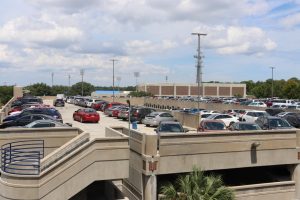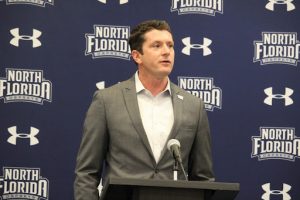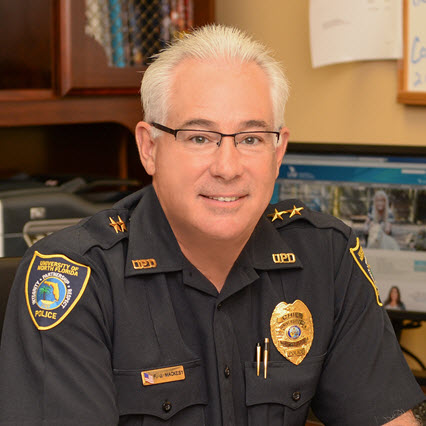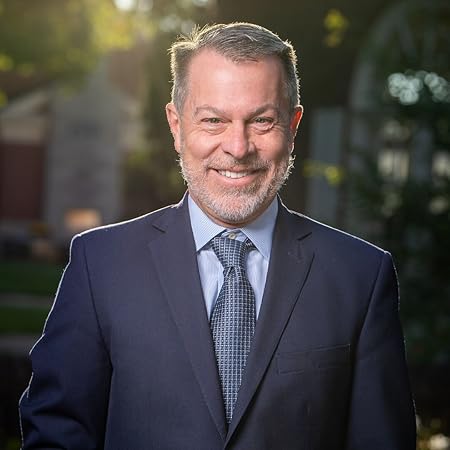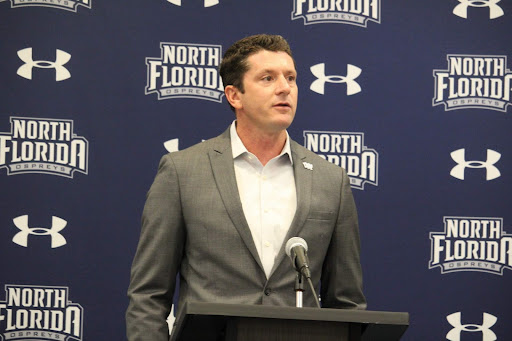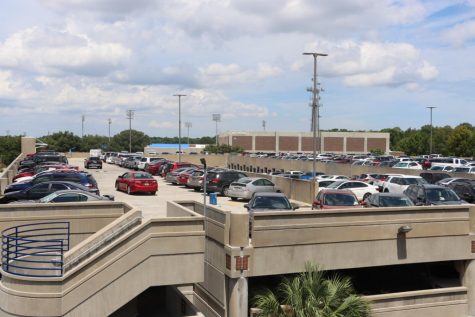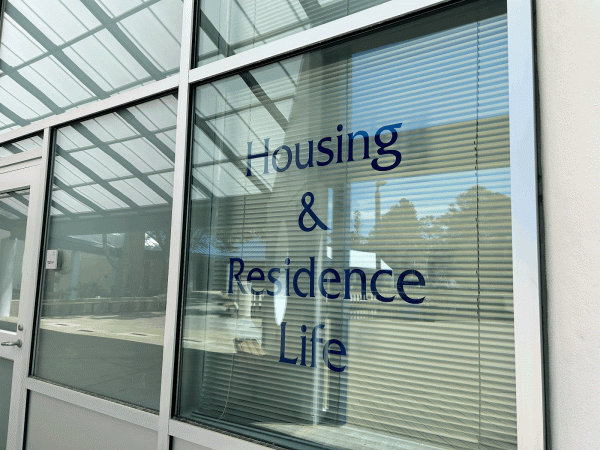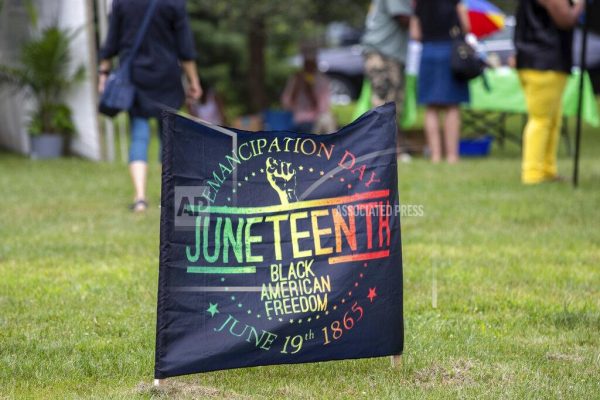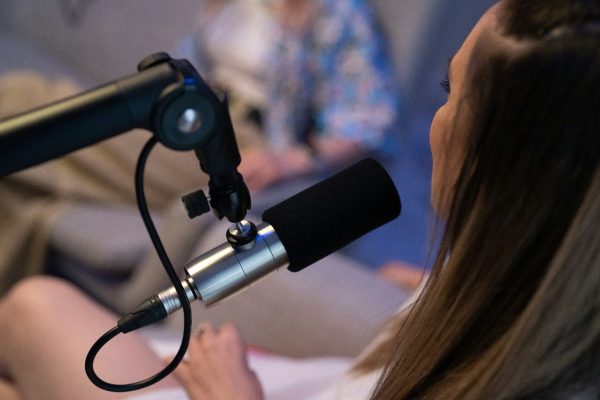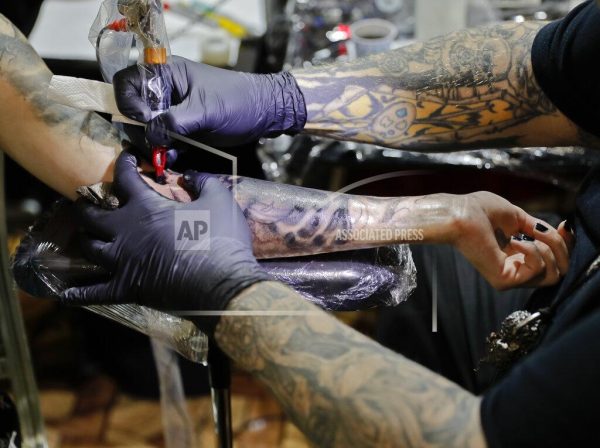What ever happened with Greek housing on campus?
November 5, 2021
It’s no secret that UNF is home to many Greek organizations on campus, functioning like many other sororities and fraternities around the country. However, one thing that appears to be missing is the Greek houses that seem to be a staple for so many in Greek life at nearby, neighboring universities.
This missing factor is apparent to students in UNF Greek life as well. Whether the university will ever build houses for students has been an ongoing conversation among Greek students, one that has been reopened on numerous occasions over the years.
Were there ever going to be houses built in the past, and will there ever be houses on the UNF campus? To answer these questions, it’s important to go back in time.
A push for Greek housing previously began as early as 2003 when chapters started to collect money to build houses. A plan was actually established in 2009 for the Greek organizations to indeed lease land from the university to build their own houses. However, former UNF President John Delaney said this plan proved to be unsuccessful because Greeks did not have the proper funds to carry out this initiative.
The conversation was then reignited in 2013 with much hope.
On April 18, 2013, Spinnaker published an article titled, “Greek members hope to have a place to call home.”
At the time of publishing, this article highlighted new plans that were in the works under the Delaney administration to make Greek housing at UNF possible. The university was working with financial advisors to determine the financial feasibility of Greek housing and worked to see if the program could possibly run through UNF’s Housing and Residence Life Department. There was even a June 1 deadline for at least 5 chapters to make financial commitments. Delaney said each chapter would have to make a downpayment of $20,000 as well. If the project was to reach its goal of commitments, the houses were supposed to be located behind Hicks Hall, a 20-minute walk from most academic buildings, and across Kernan Blvd. from Alumni Drive.
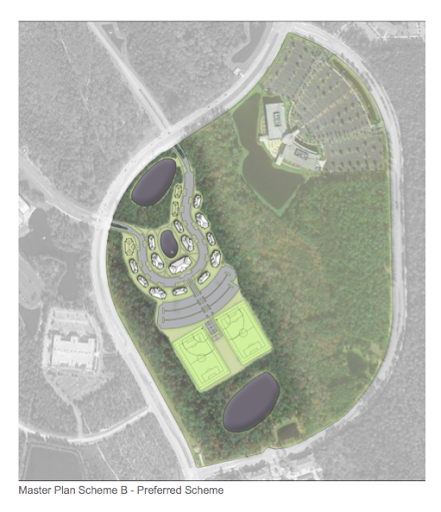
To many people’s disappointment, these plans— that once looked so hopeful— fell through the cracks.
The Senior Director of Housing and Residence Life at UNF, Robert Boyle, said that it was a challenge to get everyone on the same page.
He was on the project at the time and dealt with people who were working through the logistics of the architecture and finances in the study.
Companies hired on the study tested to see if Greek housing could function as part of the housing inventory, and how it could then perform. They needed to see if the university could keep up with the costs of maintaining the buildings and if the revenue from them was enough to keep them operating.
“I don’t think it’s scientific. You build a building, you need money to take care of it and it’s ongoing taking care of it,” said Boyle.
Boyle said it all got pretty far. Greek life was excited about it and so was the university. Through the feasibility study and market research, Greek students were surveyed and very much encouraged to participate in the process. There were public meetings with Greek students and advisors for full transparency on data collection, operating costs, and potential plans.
Everything seemed to be going well. Some chapters had even already started saving money and they were ready to commit. So what happened?
Boyle explained that it really wasn’t the university who stopped the process, it was some advisors saying that it wasn’t a good move.
“I think there was a lot of momentum at that time to physically do it and there was a lot of student interest, but as I recall, there were some advisors of these organizations that didn’t think it was a good move, and they wanted the university to foot a larger component of the cost,” said Boyle.
Fronting the cost and relying on Greek organizations to make their loan payments did not make sense for the housing inventory at the university during the time. It was deemed too risky.
Spinnaker conducted a poll on our Instagram page asking, “If you are a part of Greek life, would you want to see Greek housing on campus?”
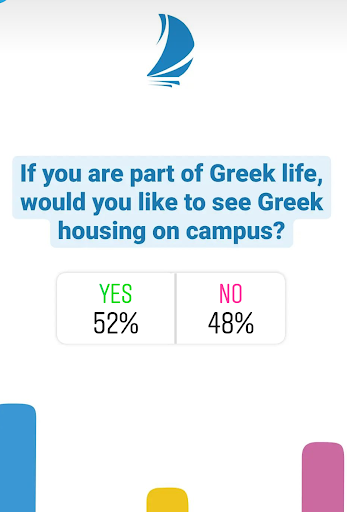

99 participants responded yes, which was 52% of those polled, and 91 responded no, which was 48% of those polled.
Having heard from students, Spinnaker also reached out to the current Office of Greek and Sorority Life UNF Associate Director Jen Miranda for her thoughts. She declined to comment on the situation.
Justin Sipes, the former Coordinator of UNF Fraternity and Sorority Life in 2013—presently called the Office of Greek and Sorority Life— gave his insight.
“I think the plan that was created was a sound plan. It’s just at the time the organizations weren’t in a place financially to contribute a portion that they would need to contribute to make that happen,” said Sipes.
Sipes explained that there was definitely disappointment at the time from multiple areas. The university felt that it had a good plan in place. They were getting feedback from the undergraduate students and from the national organizations. According to Sipes, ultimately, some of the organizations didn’t feel like their needs were being met so it had to be put on hold.
The process to build houses is tedious as it entails a combination of students in Greek life, the university as an institution, those in UNF housing, and national Greek organizations to be in an agreement to reapproach the situation. According to Sipes, It really does depend on the students to make it a viable experience. If they ultimately want housing, but they aren’t willing to fill the vacancies in the house or pay the costs, it’s always going to be a difficult proposition.
“My hope is that from that experience the organizations started putting in place some of the things that will make it, if it comes up again, a successful proposition in the future,” said Sipes. “I think as the institution is continuing to grow it’s probably going to be something that’s going to come up again in the near future.”
___
For more information or news tips, or if you see an error in this story or have any compliments or concerns, contact [email protected].



